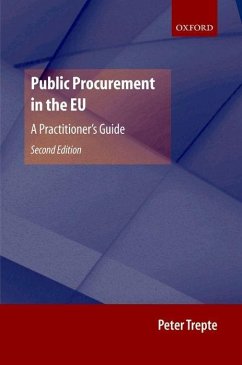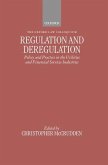Whilst it considers the EU objectives of procurement regulation and the interpretations provided by the European Court, its primary purpose is to explain the effects of the EC rules in the context of real world procurement practices and procedures. The book takes into account the latest amendments brought about by the EC Directives of 2004, including: the consolidation of the Directives to introduce a more sequenced logic; the significant improvements and amendments brought about by both Directives: the introduction of new procedures; the introduction of electronic procurement (including specific provisions relating to dynamic purchasing systems and electronic auctions); the permissibility of the application of social and environmental policies and the applicable conditions as well as the amendments to the utilities sector Directive in respect of its scope (coverage of telecommunications removed and postal services added); the new general escape mechanisms for competitive markets and the significant changes to the affiliated undertakings. The book also covers the other EC procurement rules which apply to funded contracts and contracts benefiting third countries.
This is a detailed and practical guide to the January 2006 EC Procurement Directives in the public and utilities sectors, which set out the minimum standards to be provided by the EU member states in guaranteeing a level playing field for regulating public procurement. It clearly explains the legal provisions that must be complied with in order to compete successfully for public contracts throughout the European Community, including those involving the Community institutions themselves.
This is a detailed and practical guide to the January 2006 EC Procurement Directives in the public and utilities sectors, which set out the minimum standards to be provided by the EU member states in guaranteeing a level playing field for regulating public procurement. It clearly explains the legal provisions that must be complied with in order to compete successfully for public contracts throughout the European Community, including those involving the Community institutions themselves.








